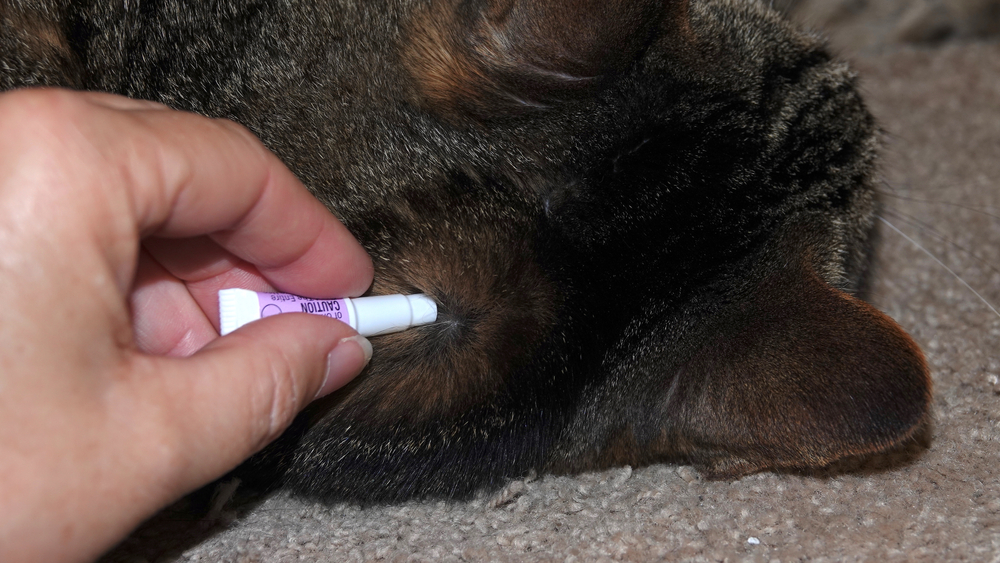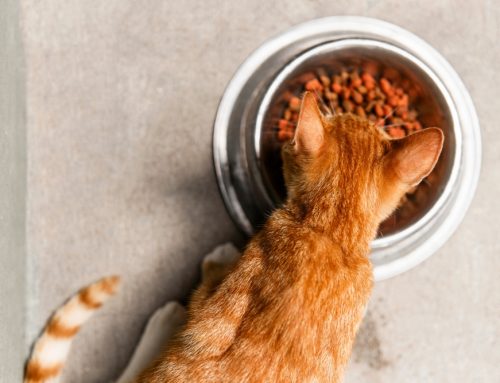You may be tempted to slip your pet a pain reliever when they aren’t feeling well, or perhaps they ate a prescription pill you accidentally dropped on the ground. These common scenarios may result in serious poisoning and put your pet in harm’s way, as many human medications are actually toxic to pets. Oliver Animal Hospital has compiled a list of the most common medication toxicities in pets.
#1: Human over-the-counter medications
Over-the-counter (OTC) medications are those that can be purchased without a prescription. We use them for ailments such as headaches, joint pain, stomach upset, allergies, and colds. Well-meaning pet owners sometimes give pets these medications when they are not feeling well, unintentionally poisoning them. Ingestion may be accidental in other cases. OTC medications of concern include:
- Non-steroidal anti-inflammatories (NSAIDs) — Ibuprofen (e.g., Advil, Motrin) and naproxen (e.g., Aleve) are the most common toxic NSAIDs ingested by pets. Humans frequently take these drugs for pain, but differences in metabolism mean pets cannot safely do the same, and ingesting only one to two pills may cause stomach ulcers or kidney failure. The only safe pet NSAIDs are those prescribed by your veterinarian.
- Acetaminophen — Acetaminophen (e.g., Tylenol) is a popular pain reliever with a reputation for human safety, but pets are a different story. Acetaminophen damages red blood cells in cats, impairing their ability to carry oxygen. Liver damage may result in dogs, along with the same red blood cell damage seen in cats.
- Aspirin, kaopectate, and pepto-bismol — Aspirin is another type of pain reliever used in people that is not a good choice for pets in pain. Low doses of aspirin may be prescribed to treat certain conditions, but higher doses, enough to relieve pain, can cause stomach upset, ulcers, bleeding problems because of blood thinning, seizures, and liver damage. Kaopectate and pepto-bismol contain an aspirin derivative called bismuth salicylate that causes the same problems as aspirin.
- Decongestants — Decongestants, such as pseudoephedrine, may be accidentally ingested when combined with an allergy medication. These have stimulant-like effects, and can be harmful or deadly to pets. Ensure any allergy medication given to your pet contains only the single ingredient your veterinarian recommended.
#2: Human prescription medications
Many types of medications are prescribed for people that leave pets vulnerable to a number of toxins that pose varying risks. According to the ASPCA Animal Poison Control Center, the following are the most commonly reported prescription medications that may result in serious pet poisonings:
- Anti-anxiety and antidepressant medications — Anxiety medications are sometimes prescribed for pets, but not all are safe, and overdose occurs easily. With accidental ingestion, pets may experience sedation, seizures, and incoordination, or the opposite may occur with agitation, and increased heart rate, blood pressure, and body temperature.
- Heart and blood pressure medications — Again, certain heart and blood pressure medications are prescribed for pets, but not all of them are safe. Beta blockers, which may cause a slow heart rate and life-threatening drop in blood pressure, are particularly dangerous.
- ADD/ADHD medications — These are typically strong stimulants, and ingestion may result in agitation, tremors, seizures, elevated body temperature, and heart problems in pets.
- Sleep aids — Sleep aids can encompass different types of medications, including benzodiazepines (e.g., Xanax, Ativan), which can cause liver failure in cats. In dogs, some benzodiazepines are safe, but many dogs react adversely, becoming agitated rather than sleepy. Any type of sleep aid overdose may cause extreme sedation, difficulty walking, and dangerously slowed breathing.
#3: Veterinary prescription medications

Prescription medications may be dangerous for your pet if they ingest too much. Topical flea and tick preventives used incorrectly can also pose safety concerns.
- Flavored medication overdose — The number one culprit for flavored medication overdose is Rimadyl, a type of NSAID made for dogs. Rimadyl is safe when used as directed, but has added flavoring that makes the chewable pill irresistible. Some dogs like the flavor so much, they steal and eat the entire bottle. Overdose can result in problems from a mild stomach upset to liver failure, depending on how much the dog ate. Other commercial and compounded medications also have flavoring added for easier administration, and pet owners should keep these out of their pet’s reach.
- Canine flea/tick products accidentally used on cats — The topical product permethrin is toxic to cats. Any product formulated for dogs that contains permethrin is labeled “do not use on cats,” but mistakes happen. Permethrin toxicity causes twitching, tremors, drooling, and hypersensitivity to touch.
While these are the most common medications that pets may encounter, others may be harmful to your pet, too, so always err on the side of caution. If your pet ingests anything that was not prescribed for them, contact the ASPCA Animal Poison Control Center and your Oliver Animal Hospital or emergency veterinarian right away. Treatment is more likely to be successful the sooner you take action.
The best strategy for keeping pets safe from toxic medications is prevention. Secure medications in a cabinet or other location out of your pet’s reach, keep purses and bags secured, and avoid storing medications in easily chewed containers, such as plastic bags. Contact us to schedule an urgent visit if you believe your pet has ingested a toxic medication, or if you have any questions regarding medication toxicities. Your Oliver Animal Hospital team is here to help.








Leave A Comment